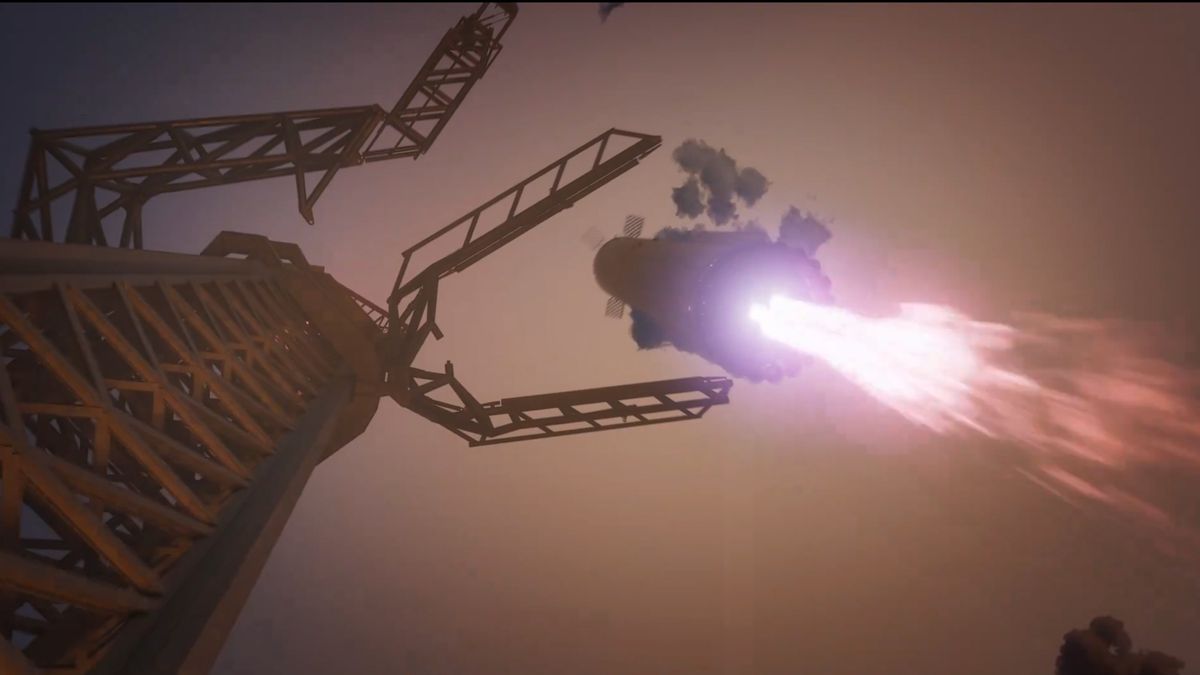The next flight test of SpaceX’s Starship could include a new milestone, according to a teaser included on a video of highlights from the rocket’s fourth flight test.
SpaceX posted the video on X (formerly Twitter) on Thursday (July 4), which contains a montage of milestones from Starship’s fourth flight test that took place on June 6. The video shows clips from ignition, lift off, booster separation and the reentries of both the Starship upper stage and its Super Heavy booster.
At the end of the video, an animation depicts a 400-foot-tall (122-meter-tall) Super Heavy coming back in for a landing at Starship’s launch tower, known as “Mechazilla,” beside the words “Next up” and “Flight 5,” suggesting the company plans to attempt to catch the booster on its upcoming flight test. SpaceX plans to catch Super Heavy on its launch tower so the rocket can be refurbished and relaunched more efficiently and on shorter timeframes, the company has said.
SpaceX CEO and founder Elon Musk has suggested as much on social media as well. “Aiming to try this in late July!” Musk wrote on X last month, following Starship’s fourth flight test.
The company previously posted a 60-second animation of the “chopstick” arms on the huge Mechazilla launch tower catching a Super Heavy booster as it comes in for a landing at Starbase, SpaceX’s site in South Texas.
Prior to that, on June 27, the company posted a short video on X of Mechzilla’s chopstick arms grasping a stationary Super Heavy as it sat upright on its launch mount. “Starbase team testing the tower chopsticks for the upcoming catch of a Super Heavy booster,” SpaceX wrote in the video’s description.
Starship has launched four times to date: In April and November 2023, and on March 18 and June 6, 2024. Each test was more successful than the previous one, ticking off additional milestones every time.
On its first flight, Starship’s two stages failed to separate and the vehicle was detonated in fewer than five minutes. On its most recent mission, both Starship and Super Heavy reentered Earth’s atmosphere intact, both making ocean splashdowns.
The massive vehicle is designed with off-world destinations in mind. SpaceX wants Starship to reach Mars, and potentially help settle humans there, while NASA is planning to use the rocket to land crews on the moon during the Artemis program.

Dr. Thomas Hughes is a UK-based scientist and science communicator who makes complex topics accessible to readers. His articles explore breakthroughs in various scientific disciplines, from space exploration to cutting-edge research.








